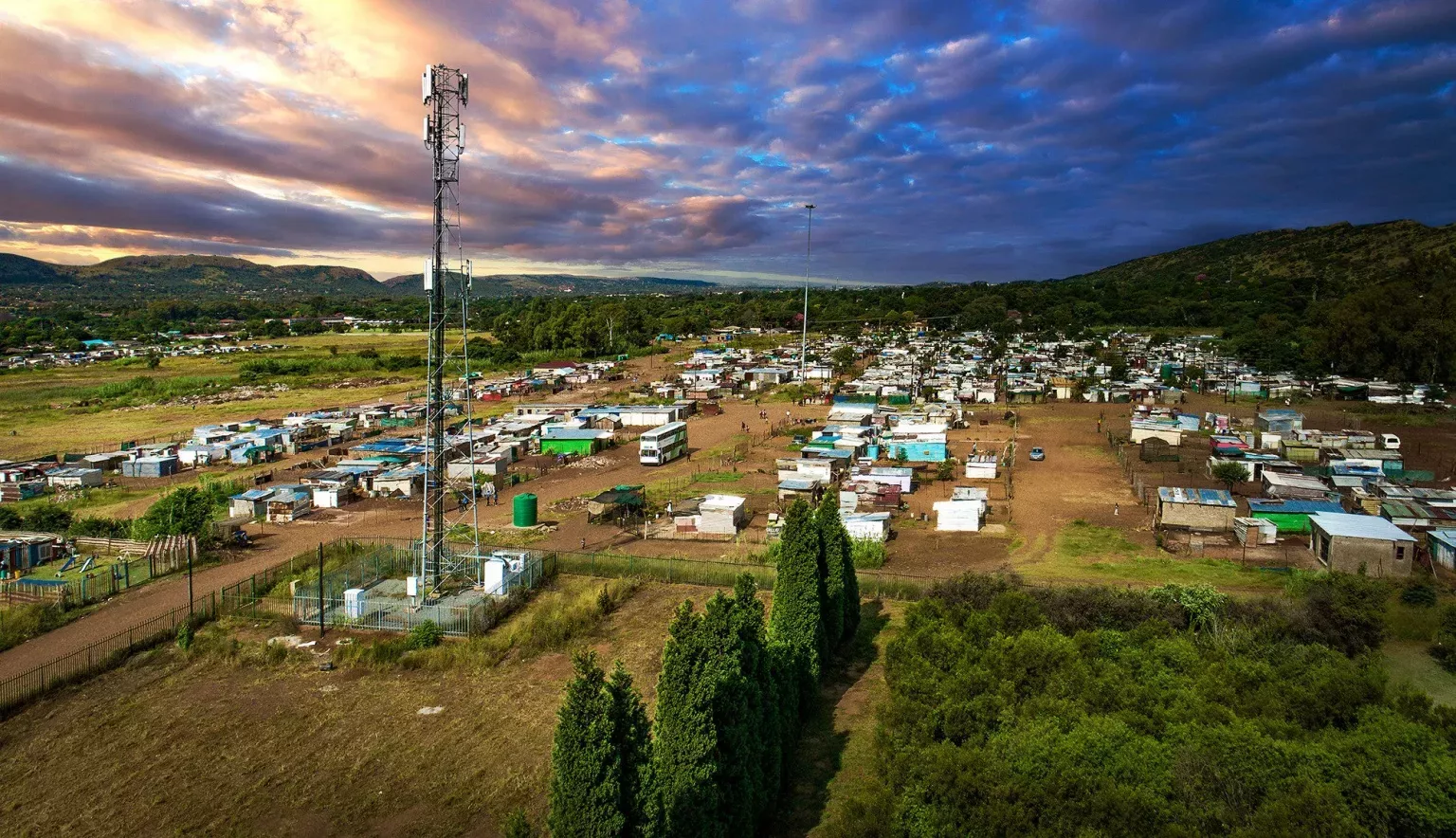Since entering the South African market in 2013, Atlas Tower has been driving wireless connectivity across the country, the firm looking to expand its reach both here and beyond.
THE CONNECTIVITY CATALYST
Mobile phones represent a lifeline for many consumers across Africa.
Far beyond simply a communication device, they are often the primary channel to get online and a critical tool to access various life-enhancing services such as finance, education, health and utilities.
Research from trade association GSMA repeatedly underlines these assertions. In 2017, it recorded 444 million unique mobile subscribers in Sub-Saharan Africa, a penetration rate of 44 percent, up from just 25 percent at the start of 2010.
This is forecast to reach 52 percent, or 634 million subscriptions, by 2025, growing at a solid annual rate of 4.6 percent.
Perhaps even more illuminating is the prediction that data usage across the region will grow sevenfold between now and 2024, driven by a young consumer base which is triggering a profound shift in mobile engagement patterns.
These trends translate into an enticing prospect for wireless infrastructure specialists such as Atlas Tower.
Originally founded in the US by current CEO Nathan Foster in 2007, he identified the opportunity Africa presented and the role his company could play in catalysing economic development for the betterment of its citizens.
“Africa’s significant population, intense mobile subscription growth and data penetration rates are a key driver in our business,” he explains.
“With more than a billion people in Sub-Saharan Africa, penetration rates still relatively low, and with a youthful population eager to adopt wireless connectivity, Africa provided the correct fundamentals.
“Generally speaking, Africa is skipping some steps in the traditional first world telecom and connectivity calendar – landline communication has never played as important a role in African households as it has in European and American ones. Wireless communication has therefore sprinted to the forefront and is as vital in Harare as it is in Manchester.”
Moving into international markets may not have appeared the most natural step for Atlas Tower on first glance.
The company had created a niche business with assets primarily located in affluent, difficult to build US communities, but its underlying trait of generating top-of-the-range asset value is what convinced Foster it would succeed elsewhere.
“In 2013, we began exploring African markets,” he continues. “While our competitors in the US were looking south, we believed southeast had more options.
“My wife and I had spent a lot of time in Africa, so the fundamental business risks that keep many of our countrymen off the continent seemed less formidable to us.”
BUILDING WIRELESS FOUNDATIONS
Foster and his team have never looked back. Today the company owns more than 1,000 macro towers around the world, with most of its portfolio residing in South Africa.
These wireless infrastructure sites serve all mobile network operators (large and small, licensed and unlicensed), with clients including Vodacom, MTN, Telkom, Airtel, Orange, CellC, Rain, Liquid, and several smaller operators and wifi providers.
Flexibility and accountability are important hallmarks of Atlas Tower’s services, its towers built with the option to extend and adjust according to individual client requirements.
Tower site development are managed via an expansive network of offices, its 60 regional employees based in offices in Cape Town, Pretoria, Durban, Nairobi, Garborone, Umthata, Port Elizabeth and Bloemfontein.
This approach, combined with deep knowledge of town planning and regulatory process, is a key differentiator for Foster.
“We are company born from town planning and land development, not from corporate finance, like most,” he says. “This means we focus on fast development of modern infrastructure, not the buying and monetising of older, more antiquated towers sites.
“Most competitors buy tower assets from mobile network operators, a model that we generally do not subscribe to since it does not provide enough site by site value. Thanks to our proprietary methodology, we believe we have some of the most valuable sites on the continent, positioned to be critical to the growth of the next generation of wireless networks.”
The fact that more than 60 percent of its staff hail from town planning and land development backgrounds also means Atlas Tower can be the best at manoeuvring through challenging land development schemes.
Foster continues: “Our makeup ensures we focus on the constant improvement of the land development process. We try to incubate a creative work environment, where no new idea meets resistance. We believe being creative actually promotes speed and the fastest delivery of solutions to our tenants.”
POWERING PEOPLE
This empowering working environment is a source of pride for Foster and his fellow Co-Founder Randi Clendennen, who serves as Atlas Tower’s Chief Strategy Officer.
A business background stretching beyond two decades, she recognises the value in creating a vibrant workplace.
“We have a strategic approach to building a dynamic, diverse team of local professionals who are experienced, results driven and share a common passion for success and integrity,” Clendennen adds.
“We seek to build a working environment where individuals are free to be creative, innovative and implement a think outside the box approach. This is backed up with ongoing training and we ensure our team have the tools they need to provide our clients with streamlined solutions.”
The success of Atlas Tower’s venture into South Africa to date has enabled it to impart its skills in local communities, an important part of the company’s corporate social responsibility programme.
Clendennen highlights how the firm is offering career development opportunities through provision of training and work experience, activities which have been extended through the establishment of the Atlas Community Enrichment and Sponsorship scheme.
“This programme is an important aspect of our business,” she says, “as we feel strongly in giving back to the community in which we live and work. Our goal is to meet needs which are sustainable and support learning and care for our community.
“We have completed a number of initiatives with schools, orphanages and old age homes by providing computers and coding software, building a school classroom, providing fencing and protection, classroom desks, sports kits and building remodelling.”
SCALING NEW HEIGHTS
It is also the ambition of Clendennen and Foster to uplift a greater number of communities not only through CSR activities, but expansion of its own tower network to enable greater levels of connectivity.
Atlas Tower is already one of the fastest-growing companies in its sector, a status enhanced by recent awards, namely the 2016 TowerXchange Industry Award for best Build-To-Suit Towerco and 2017 Infrastructure Company of the Year.
This solid foundation means it is well-placed to continue expanding beyond the borders of South Africa.
“We are a licensed tower company in three other African countries,” says Foster. “Building a new tower portfolio takes time, and we are still very small outside of South Africa as building new infrastructure is a slow and patient process.
“We have learned a lot from South Africa and are using the wisdom from the last five years to make better, more long-term decisions.”
Any growth phase will require even deeper relations with suppliers, including the partners responsible for making the company’s towers.
Foster continues: “The vendors who supply our towers work in an interesting ecosystem, one that requires cheap raw steel and high production levels to maintain profitability. It’s certainly a commoditised sector of our business, where in theory we can simply go to the cheapest international provider of steal towers.
“However, we have a proven, large-scale, local supplier that has already introduced 10,000-plus towers to the market here in South Africa. We do also use some smaller start-up and niche manufactures that specialise in certain tower types, and I believe we have the right mix of suppliers that offset risk while achieving maximum scale value.”
This aligns with Atlas Tower’s short- and longer-term ambitions. For Foster, the year ahead is about smart and successful geographic expansion, coupled with continued incorporation of power as a service to all of its markets.
Once achieved, the socioeconomic impact of Atlas Tower will only multiply.
It is a prospect which excites Foster, the CEO concluding on a positive note: “We are confident about the rapid growth of our infrastructure making a real difference to the people and networks we serve. I have seen this reality with my own eyes.
“In the past, voice communication between people was the key driver for new tower locations, but today it’s more like we are building the roads (i.e. the towers) that connect people to the world’s information. So, although the car (i.e. mobile operator) one drives can change, the roads we are building will not.
“We want to give people equal access to all the networks so they can freely pick the best one to navigate the millions of data that can inform, teach, and educate the population. The new world of wireless connectively, ultimately, will improve the economic position of people in all communities.”
































